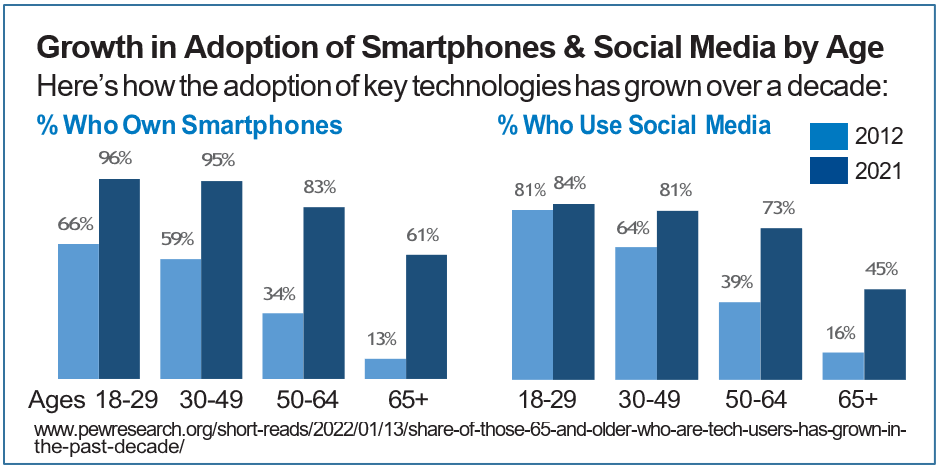Even if you’re not a significant technology user, your digital footprint may be larger than you think. This may be an important consideration in estate planning. A recent article in the popular press serves as a reminder: While many digital assets often have little monetary value, they may have substantial sentimental value. Overlooking the transfer of these assets may have sad consequences. One widow could not retrieve thousands of photos stored on her partner’s cloud account. Another wasn’t able to access her late husband’s Facebook page.1
Canada lacks consistent legislation giving the executor or attorney the automatic authority to deal with digital assets, with rules varying by province — if they exist at all. Saskatchewan was the first province to introduce legislation that grants executors/fiduciaries access to digital assets.2 Yet, even if laws do allow for authority, the reality is that access can be difficult if no provisions have been made by the deceased. Often, customer support for online accounts is limited, creating challenges and undue stress during an already emotional time.
 Many of us carefully construct a plan for investments, real estate and other physical belongings; yet, as more of our lives operate digitally, we may not be doing a good job of planning for our digital assets. As a starting point, here are a few tips to begin the process:
Many of us carefully construct a plan for investments, real estate and other physical belongings; yet, as more of our lives operate digitally, we may not be doing a good job of planning for our digital assets. As a starting point, here are a few tips to begin the process:
Take inventory — Just as we take stock of our physical assets for estate planning, doing this for digital assets is equally important. Keep a logbook of digital assets, including usernames and passwords. This should be stored securely and updated regularly.
Practice digital housekeeping — Protect and secure your data, not just as part of an estate plan, such as regularly backing up important files, contacts, photographs and other information stored on your computer, smartphone or the cloud and encrypting sensitive data.
Consider a password manager — Often, keeping a list of accounts/ passwords isn’t enough, as we may forget to update it. A password manager may be helpful. These software programs maintain access information to digital accounts, including account numbers, passwords and other important data you might need to leave behind.
Create a legacy contact or plan — Did you know you can designate a legacy contact for Apple accounts or create a legacy plan for Google accounts? Some social media accounts also offer legacy options. For an iPhone or iPad, go to “Settings” and then tap your name. Under “Password & Security” you will see the “Legacy Contact” option. The system will generate an access key for your contact, which will need to be presented alongside a death certificate to access data. For Google, go to “myaccount.google.com” and tap “Data & Privacy,” then scroll down to “More Options” and look for the option “Make a plan for your digital legacy.” You can decide when Google should consider your account inactive and what will be done with your data, which can be shared with someone you trust or deleted by the system.
Update your estate plan — Make sure your will and power of attorney documents (or other directives, the names vary by province) include language specific to digital assets, giving a representative authority to access, manage, dispose of and distribute them.
“Life After Death: Secure Your Digital Legacy Before You Die,” Julie Jargon. Wall Street Journal, April 25, 2023, A11;
https://dig.watch/updates/saskatchewan-ca-introduces-fiduciaries-access-digital-information-act
As always, please consult an estate planning professional.
Any view or opinion expressed in this piece are solely those of the Representative and do not necessarily represent those of Harbourfront Wealth Management Inc. The information contained herein was obtained from sources believed to be reliable, however accuracy is not guaranteed. The information transmitted is intended to provide general guidance on matters of interest for the personal use of the viewer, who accepts full responsibility for its use, and is not to be considered a definitive analysis of the law or factual situations of any individual or entity. Any asset classes featured in this piece are for illustration purposes only and should not be viewed as a solicitation to buy or sell. Past performance does not necessarily predict future performance, and each asset class has its own risks. As such, this content should not be used as a substitute for consultation with a professional tax or legal expert, or professional advisors. Prior to making any decision or taking any action, you should consult with a licensed professional advisor.